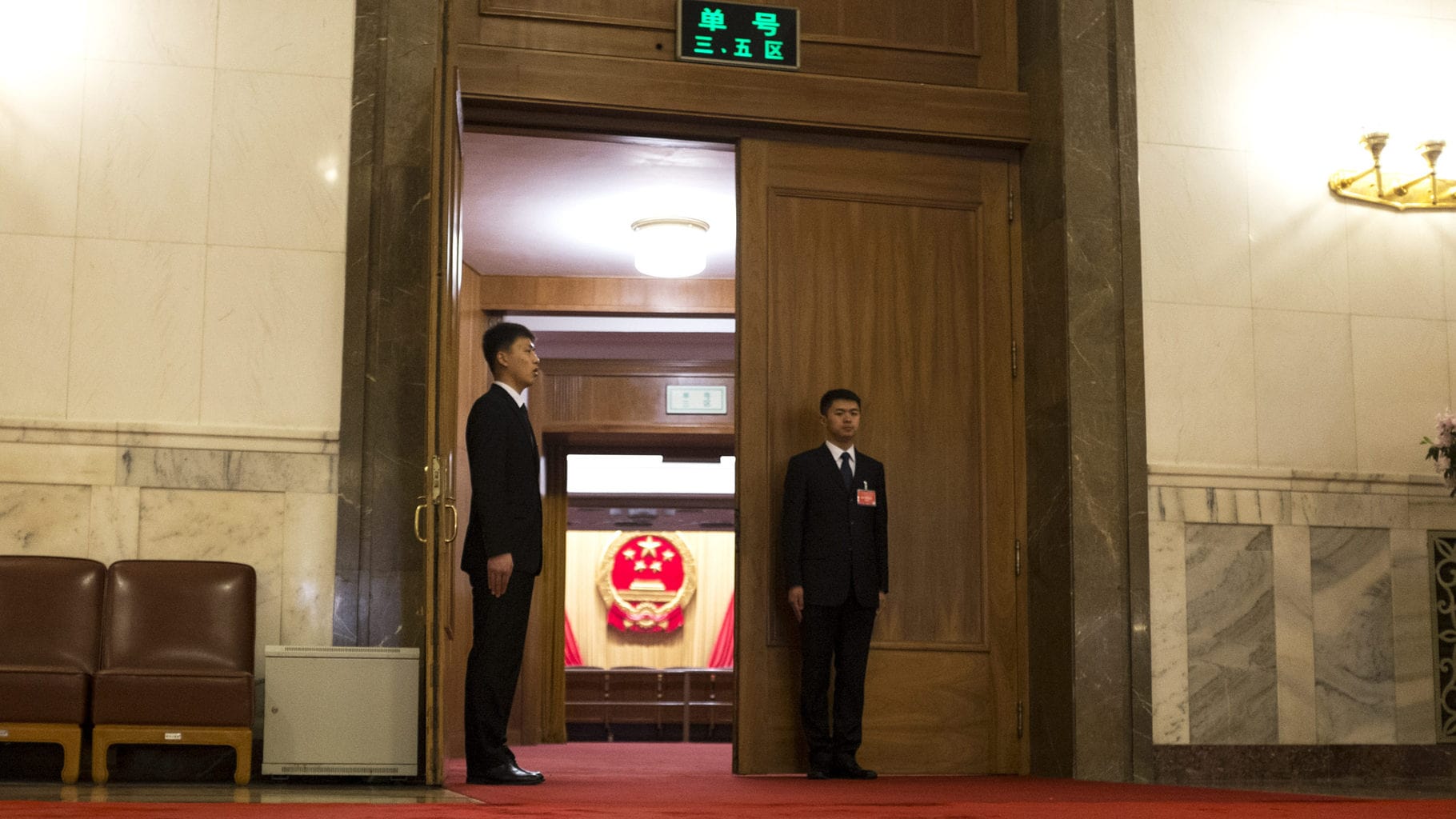China’s government has confirmed that the country’s ‘Two Sessions’ or ‘Liang hui’ will take place in Beijing beginning from May 21st. These crucial political meetings had originally been scheduled to start on 5th March but were postponed due to Covid-19.
This year’s Lianghui is particularly important given the ongoing pandemic: confirmation that it is taking place in May will be seen as a key marker in China’s process of getting back to normal. The full announcement by China’s National People’s Congress (in Chinese) can be read here.
Key Topics
During the ten day congress, the around five thousand members of the National People’s Congress (NPC) — whose opening ceremony is scheduled for May 22nd — and the Chinese People’s Political Consultative Conference (CPPCC) will convene in China’s capital to discuss and approve major legal and political decisions.
This year’s economic growth target will be set during the meetings. After the economy’s 6.8 percent year-on-year drop in the first quarter, the full year target will be closely watched as a signal about the health of the world’s largest economy.
The target will also indicate whether the Chinese leadership believes that it can achieve its long-term goal of doubling the country’s GDP by the end of 2020 compared to its level in 2000-level, and thus also attain its aim of establishing a ‘moderately prosperous society.’ After a revision of economic data last year, China would need at least 5.9% growth this year to reach this goal.
Achieving this goal has been a top priority for China’s President Xi Jinping, even though the sudden outbreak of COVID-19 has cast serious doubt over its feasibility. There has therefore been some talk of the government setting an unprecedented ‘two-year’ growth target, which would take the current crisis into account, but which could also create conflicting policy objectives for local policymakers and state-owned enterprises.
Besides growth forecasts, the Two Sessions will also pass the annual budget for China’s central and local governments and discuss and approve major legislation.
Foreign businesses should particularly pay attention to the pending amendment to China’s patent law as well as recent initiatives around China’s anti-monopoly law, the new energy law, and other regulations related to the implementation of the country’s new foreign investment law.

Nearly 3,000 party officials convene at the annual meet to discuss new laws
Background
The ‘Two Sessions’ meetings occupy a central position in China’s political calendar. The plenum of the NPC, whose 2,980 members convene only once a year, elects and confirms major government positions, including the Premier (currently Li Keqiang). It’s also the only body with the authority to pass and change laws in China.
The most significant recent NPC plenum meeting took place in 2018 when it not only amended China’s constitution – getting rid of previously enshrined term-limits for the country’s president – but also decided on a fundamental reorganisation of the central government’s ministries and agencies. Last year, the NPC passed a major new Foreign Investment Law.
The CPPCC, on the other hand, is the central pillar of the so-called ‘United Front’ which links the country’s main civil, professional, and cultural associations to the ruling Communist Party. Similar to corporatist structures in other countries, the CPPCC’s main function is to provide input and feedback on major policy initiatives.
The ‘Two Sessions’ first took place in September 1954 but moved to March in 1985 to make annual budgeting and economic planning easier.
Further Coverage
CBBC will be providing analysis for our members following the conclusion of Lianghui – including a webinar with Trivium and readouts from our policy team.


